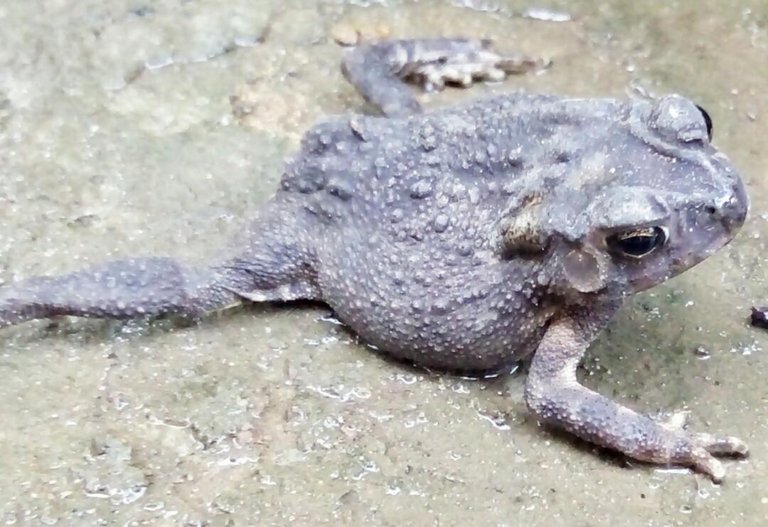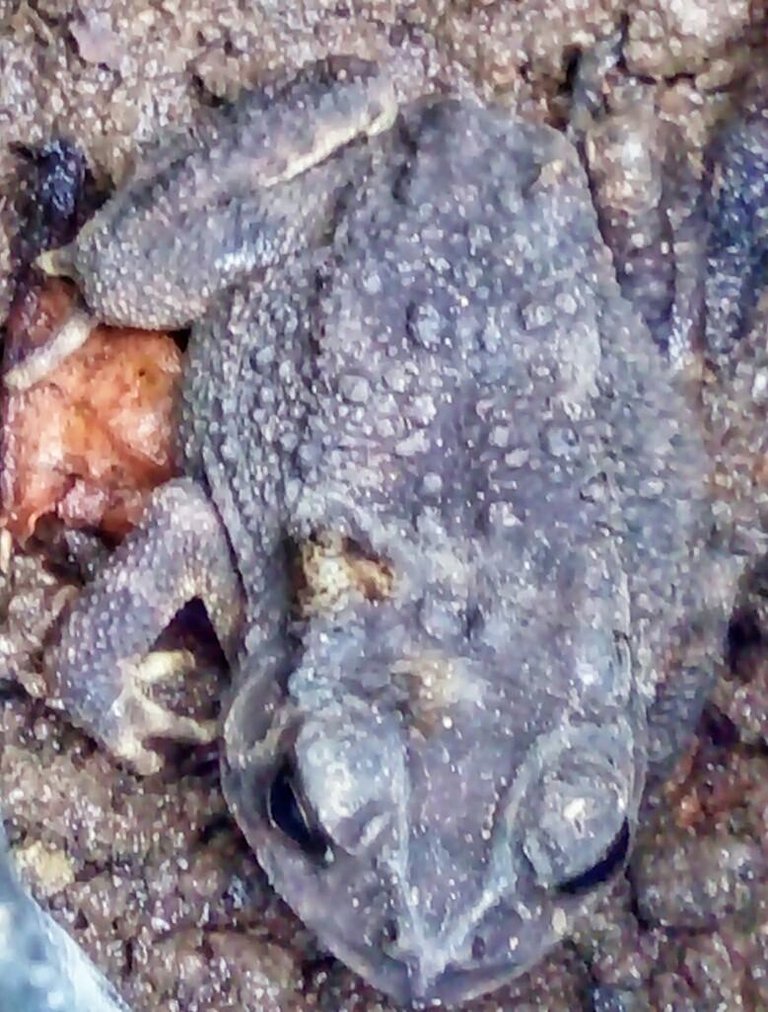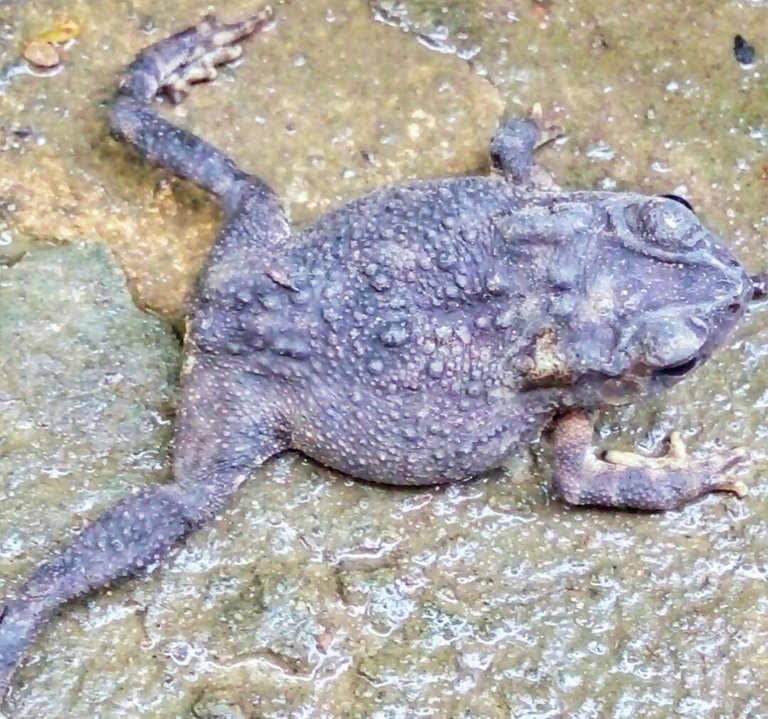
Frogs (English: frog) are insect-eating amphibians that live in fresh water or on land, smooth-skinned, green or red-brown, longer hind legs, good at jumping and swimming; Frogs, other names of bangkong (English: toad), have rough and freckled or frayed skin, are often dry, and the hind legs are often short, so most of the frogs are less good at jumping away.

Frogs and frogs start their lives as eggs that are placed on the mother's water, in a foam nest, or in other wet places. Several types of mountain frogs kept their eggs among the wet moss in the trees. While other types of forest frogs leave their eggs on the damp frog's back, which will always guard and carry them until they hatch even into small frogs. Once spawn frogs can produce 5000-20000 eggs, depending on the quality of the parent and lasted three times in a year .

Frog eggs and frogs hatch into tadpoles or tadpoles (English: tadpole), which is body-like fat fish, breathe with gills and for a long time live in water. Slowly the legs will grow back, which is then followed by the growth of the forefoot, the disappearance of the tail and the replacement of the gills with the lungs. After its time, this tadpole will leap ashore as a frog or small frog.
Frogs and frogs mate at certain times, for example at the time of the dead month or at the time of the rain. At that time the male frogs will be beeping to call the females, from the edge or the middle of the waters. Some species, such as the moored frog (Fejervarya limnocharis) and the bellyung aka bellyung (Kaloula baleata), often form the 'singing group', in which several male animals converge close together and sound in reply. The tough frog's sound is generated by a voice pouch that lies around its neck, which will bulge big when used.

Frog fertilization is done outside the body. Male frogs will cling to the female back and hug the armpit of the female from behind. While swimming in the water, the hind legs of a male toad will massage the stomach of a female toad and stimulate the release of the egg. At the same time the male frog will release its sperm into the water, so that it can fertilize the eggs that the female has released.
Frogs and live frogs are widespread, especially in hot tropical regions. The cooler the place, such as on a mountain or in a four-season area (temperate), the number of frogs tends to be less. One of them is because the frog is a cold-blooded animal, which needs heat from its environment to sustain its life and keep its metabolism.
Dendrobates pumilio, 18-22 mm frog with toxic skin from Central America.
These animals can be found ranging from jungle, desert, river banks and swamps, plantations and rice fields, to the environment of human settlements. Bangkong kolong, for example, is one type of frog that is often found in the corners of the house or behind the pot in the yard. Tree frogs inhabit low trees and shrubs, especially around waterways or ponds.
Frogs prey on the various types of insects he encounters. Frogs are often congregated in the light of street or garden lights, catching the insects attracted by the lights.
In contrast, frogs are also preyed on by other types of creatures: snakes, lizards, birds, such as cranes, eagles, garangan, linsang, and also human consumption.
The frog defends itself by jumping away, removing mucus and toxins from the glands on its skin; and some even produce a kind of sticky sticky mucus, so the mouth of its predator will stick tight and hard to open.
# I hope my friends are happy with my post #

That's a dope picture i really liked it! never seen a frog like this before.
thank